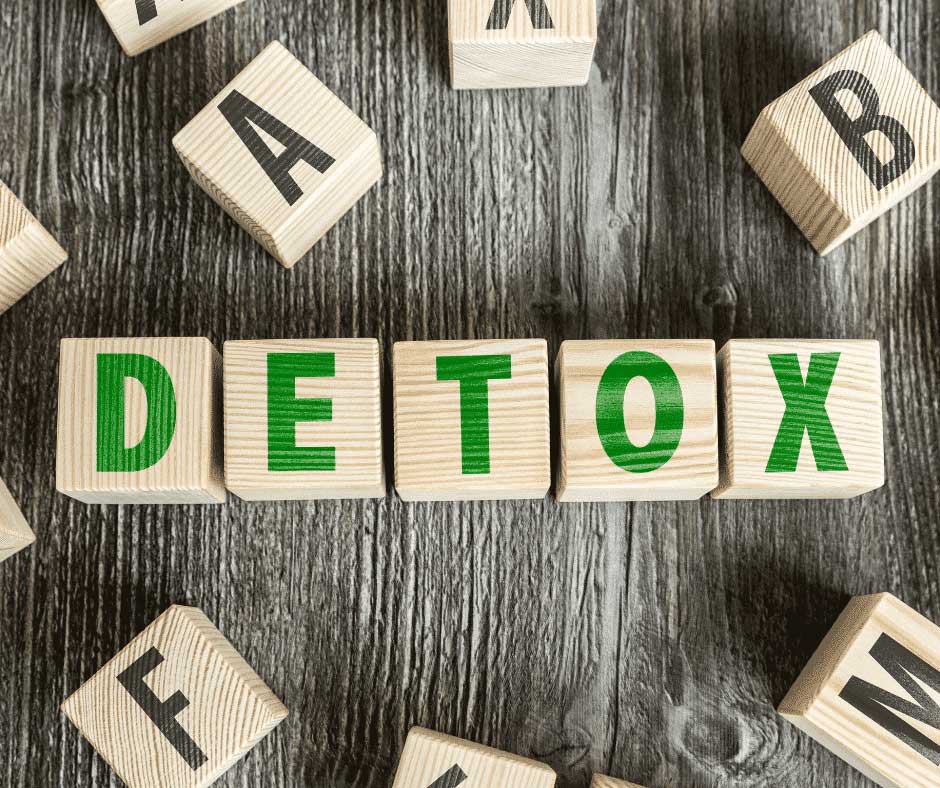Detox treatment is generally not considered to be an entire treatment on its own, but rather one step in the greater process towards addiction recovery. Within that one leap, there are smaller steps that ease a person through the process.
Why is detox treatment important?
Detoxification of the body looks different for each person, but the process of withdrawal shows similar symptoms. The process of a medically supervised detox aids the recovery process and lessens uncomfortable symptoms that come along with the body trying to be less dependant on drugs and alcohol.
Detoxing the body is an important step in the road to addiction treatment. With the right supervision, a person has a higher chance of recovering without a relapse episode or breaking a detox midway through.
Quitting addiction without the right steps in place can potentially push a person back into old habits. When you are able to assess what you need going into a treatment process, you can find the right sober help for long term recovery.
Follow our step by step guide to detox treatment to understand the process and what to look out for when considering a detox plan.
1. Evaluate the type of care you need
Every person has an array of experiences and relationships that affect their connection to addiction. Going through a detox process is only one part of separating the physical addiction from the mental habits that perpetuate the habit in the first place.
By understanding the type of care available and evaluating the care you need, you can talk with a medical professional about the addiction help you need. Many individuals find it hard to initially seek help for fear of the withdrawal symptoms or having to make a serious life change.
When you can evaluate the care you and support you need to work through a detox treatment, you have a stronger chance of overcoming it.
2. Choose A Safe Detox Process
There are a few approaches to detox treatment to consider when looking for ways to overcome addiction.
“Cold Turkey” Detox
If the addiction is not severe, some people choose to go “cold turkey” and transition the physical dependence of a substance on their own. However, the method is not recommended for a recovery process and often can have serious consequences if not done effectively. Individuals also experience the full brunt of withdrawal symptoms, which can lead to quicker relapses or extreme discomfort.
Drug Detox Kit
Drug detox kits are on the market but are not as closely regulated as they should be. In many cases, people choose to use them to avoid the detection of a substance in their system for a work drug test. However, it is not often effective for short-term or long-term recovery methods. Due to the lack of research and regulations concerning detox kits, it is not an advised treatment method.
Short-Term Medicated Detox
The more common approach is short-term medicated detox. The process is used for less severe cases and does not require long-term facility care. With the supervision of a medical advisor, prescribed medications help ease discomfort during the withdrawal process. Through a short-term detox, a plan can also be put in place for long-term recovery with the help of a medical advisor.
Long-Term Medicated Detox
Long-term medicated detox plans are utilized for more severe cases of drug and alcohol addiction. Medication may be prescribed for a longer period of time and closely monitored in a treatment center. Over time, a patient will receive lower amounts of medication to shift the physical dependence within the body off of drugs or alcohol.
3. Recognize Potential Withdrawal Symptoms
Withdrawal symptoms are unavoidable when it comes to addiction treatment and may include:
- Anxiety
- Insomnia
- Nausea
- Vomiting
- Headaches
- Sweating
In more severe cases withdrawal symptoms may consist of:
- Tremors
- Seizures
- Extreme hallucinations
- Disorientation
- Delirium tremens
Due to the potential severity of withdrawal symptoms, it is always recommended to find a detox center close to you. Type in the search bar for “detox center near me” to find a center closest to where you live.
If you are concerned about withdrawal symptoms, talk through your concerns with a medical professional, and create a plan that makes the symptoms as comfortable as possible as you ease your body into sober living.
4. Know What Types of Medications Are Used With Detox Treatments
There are more commonly used medications that coincide with successful treatment outcomes. Depending on the type of addiction, medical treatment can vary.
Types of medications used include:
Benzodiazepines
Benzodiazepines are designed to help calm the nervous system and are prescribed to help with insomnia, anxiety, and muscle spasms during the withdrawal process. There are short-acting and long-acting benzodiazepines and are often administered at an inpatient treatment center.
Naltrexone
Naltrexone is used for alcohol and drug detox methods to block the rewarding effects in the brain to reduce cravings. It can be used as a long-release injection that lasts for a month that does not cause withdrawal symptoms after use. However, it cannot be used if there are opioids within the body at the time and is not safe for individuals with liver damage.
Acamprosate
Acamprosate is used to stabilize brain activity, decrease cravings, and does not cause dependency after use. It is primarily used to help with insomnia, restlessness, and anxiety. The downside can be the side effects of muscle or joint pain, stomach cramps, headaches, and itchiness. It can be used with individuals who have liver issues, but should not be used for those who have experienced kidney problems.
Disulfiram
Disulfiram is often used in conjunction with a treatment program for those who are at a higher risk of relapse. When taken while drinking alcohol, it induces negative side effects to deter an individual from drinking. Side effects include nausea, sweating, hyperventilation, palpitations, blurred vision, flushing of the face, and vertigo. It is often used as a tool to discourage drinking due to the physiological side effects that occur.
5. Find A Local Treatment Center
Going through a detox requires more than just the initial medical supervision. It is a long process towards recovery that should be supplemented with a long-term care program.

Inpatient Care
Inpatient care has shown to be more effective for long-term recovery. With inpatient care, you are monitored throughout the day and have access to group therapy, individualized therapy, and alternative forms to treatment.
Outpatient Care
Outpatient care can include partial hospitalization or visiting a treatment center for a couple of hours for sessions before returning home. Outpatient care is only recommended if there is a stable home environment that an individual can return to for recovery.
Customized Treatment Program
A customized treatment program is the strongest form for a detox treatment. In working alongside a medical professional, you can find a treatment center near you that has the type of support you are looking for in recovery. From a medically supervised detox to an active group or family therapy, you can determine a plan that works with your needs and situation.
6. Search for Supportive Therapy Methods
During and after detoxification, it is important to have supportive therapy methods that aid the process. It is psychologically, emotionally, mentally, and physically draining to go through a detox process, but with therapy, you can feel more supported.
Rehab facilities will have group, family, and individualized therapy to help during the detox process. By allowing yourself to unravel old habits and mental connections to addiction, you can recover from detox with a better understanding of your own relation to habits.
Cognitive-behavioral therapy is more commonly used among treatment centers for the focused ability to retrain the mind for healthier mindsets. When looking at potential treatment centers, ask your medical professional about potential therapy options that can be available with a detox plan.
7. Develop A Detox Plan That Works For You
For many who have experienced a detox process before, it can feel harder in the steps afterward in finding the right sober help.
Discuss with your medical advisor, therapist, or a trusted friend about the type of help you may need moving forward. Write down what you are looking for before searching for a “detox center near me” online. When you have a clear list of what you are looking for, you can connect with a treatment center that helps ease the detox process and supports you in the long-term for recovery.
Whether it is you, or a loved one, who is looking for a detox treatment, there are many resources available for any circumstance. While the initial stages of a treatment process can feel overwhelming or confusing, you are not alone during the process.
You always have the choice to create the life you want, and understanding the process of detoxification is one step in that journey.



